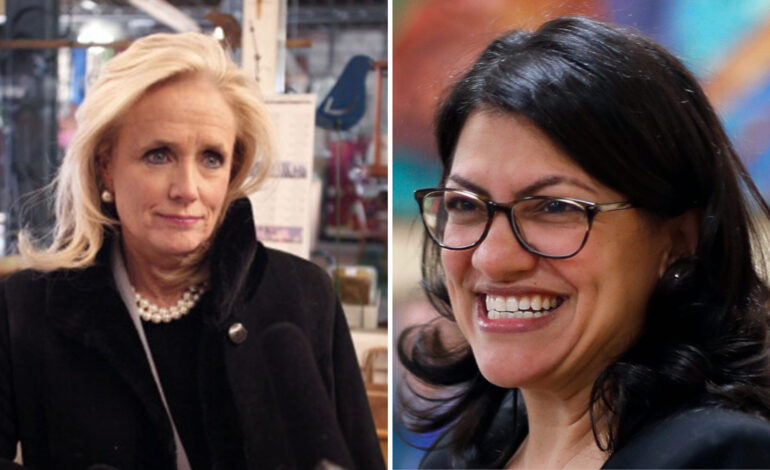DEARBORN — U.S. Reps. Rashida Tlaib (D-Detroit) and Debbie Dingell (D-Dearborn) have joined colleagues to introduce a bill that includes people who identify as Middle Eastern and North African (MENA) as a racial and ethnic minority group in the U.S. Public Health Service Act.
The MENA population is categorized as White or “other” by the federal government, on the U.S Census and in prevention and public health research.
The bill, if passed by Congress, would make the MENA community eligible for resources that are targeted towards historically marginalized groups for the first time. Tlaib and Dingell introduced the bill alongside Reps. Anna Eshoo (D-CA) and Robin Kelly (D-IL) on Tuesday, in time to wrap up Arab American Heritage Month.
The bill adds on to efforts to include MENA as a racial and ethnic category on the U.S. Census. Though that effort has gained momentum over the years, the Trump administration rejected it for the 2020 Census.
So far, federal health resources and programs targeted towards minorities have not been accessible to the MENA community. These are resources specifically designed to address the negative public health impacts experienced by minority groups and that, experts say, are key to improving health outcomes and general quality of life.
Without an official category in broad population data like the Census, researchers studying MENA have had to rely on 5-year surveys by the federal government, or even things like Arab and Chaldean name algorithms and other local data collection efforts.
The National Network for Arab American Communities (NNAAC), a part of ACCESS, reviewed available studies on MENA health outcomes and found that Arab Americans have a lower life expectancy than non-Arab and non-Hispanic Whites in Michigan.
The review also showed that in studies done in Detroit, Arab Americans reported greater proportions of various forms of cancer.
There are negative impacts on delivery of services when people who are in the Middle Eastern and North African community are categorized as “White” or “other.” — U.S. Rep. Rashida Tlaib
That review also points to a study conducted on asthma rates among the MENA community in Dearborn, Hamtramck, Oak Park and Detroit’s Seven Mile area due to their proximity to large pollution-emitting centers like the Ford plant in Dearborn.
Almost 30 percent of the adult population reported respiratory impairment in the form of trouble breathing, coughing with strenuous chores or walking, or exacerbated breathing difficulty due to tobacco smoke, fumes or strong odors.
The bill calls for more focused research and specific services for the MENA population. It would also ask Congress to increase funds authorized for programs to account for the unique health needs of MENA alongside those of all other racial and ethnic minority groups.
“There are negative impacts on delivery of services when people who are in the Middle Eastern and North African community are categorized as ‘White’ or ‘other,’” Tlaib said. “This includes prevention and public health research as well as the U.S. Census. With the Health Equity and MENA Community Inclusion Act, MENA residents will finally have their true identity reflected in our nation’s public health system.”
Dingell said the COVID-19 pandemic illuminated massive inequities in the U.S. health care system.
A survey of data from the Michigan Disease Surveillance System between March 2020 and July 2021 shows approximately 17 percent of Arab Americans tested positive for COVID-19, compared to 11.32 percent of Hispanics, 9.8 percent of non-Hispanic Blacks, 7.5 percent of non-Hispanic Whites and 4.24 percent of Asians. Arab Americans were 2.63 times more likely to test positive for COVID-19 than non-Hispanic Whites.
“(The bill) takes a long-overdue step to help our federal agencies better understand the specific health needs of our Middle Eastern and North African neighbors and will help ensure that linguistic and cultural barriers do not stand in the way of access to proper care,” she said.
Through the U.S. Public Health Service, Congress has authorized a variety of programs to address minority health concerns, something MENA individuals are excluded from.
“For too long, members of the Middle Eastern and North African, or MENA, community have been underserved by the Federal statistical system, leading to the persistence of health disparities on racial and ethnic lines,” said NNAAC Director Rima Meroueh.






Leave a Reply